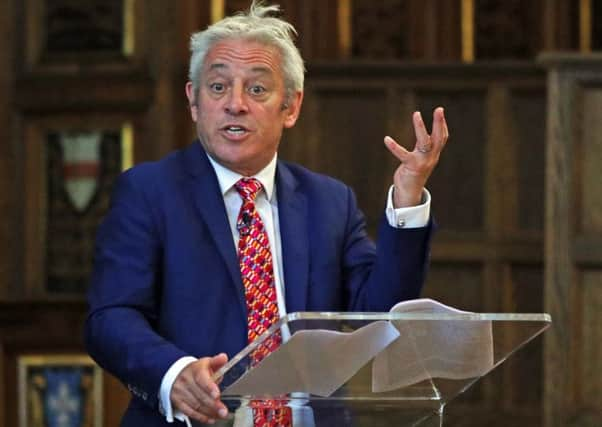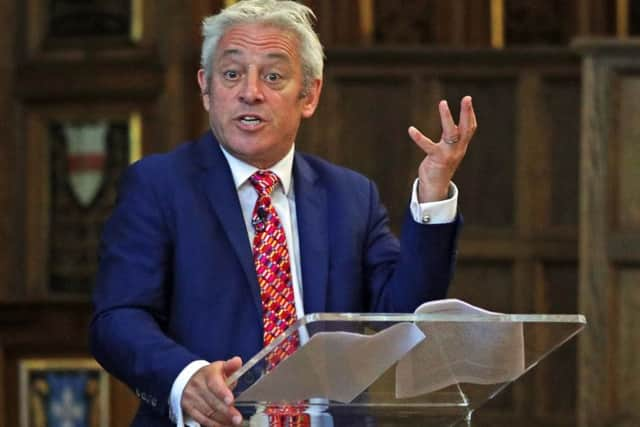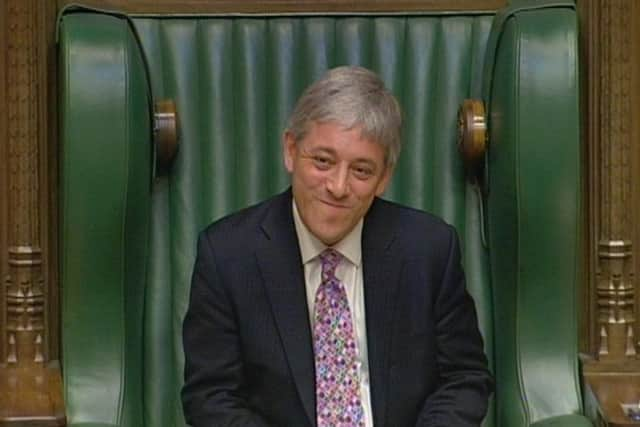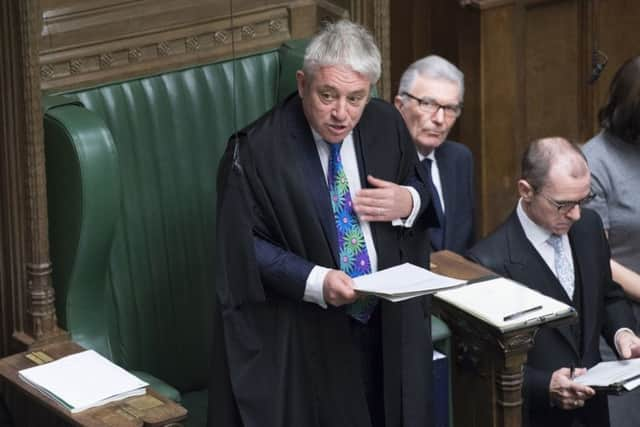Why John Bercow was a great Speaker for putting MPs first – Matthew Flinders


And yet my sense is that even his harshest critics harbour at least some grudging respect for the Speaker who really did speak for Parliament. His has been a story of territory, (de)termination and ultimately tears.
Bercow’s biggest achievement revolves around the reclaiming of constitutional territory against an incredibly powerful executive. Although the Parliamentary decline thesis was always over-stated, there is little doubt that the balance in the legislative-executive relationship had swayed too far in favour of the latter.
Advertisement
Hide AdAdvertisement
Hide AdWhy John Bercow’s replacement as Speaker must be in the best Betty Boothroyd tradition – Jayne Dowle


As Mr Bercow outlined in his resignation speech, he adopted the role of ‘‘the backbenchers backstop’’ and sought to facilitate at least a partial rebalance of the House of Commons position vis-à-vis the executive. Take, for example, the huge growth in Urgent Questions to Ministers that he took no little pleasure in approving. This – if we are honest – explains a lot of the resentment and opprobrium he has attracted. A strong Speaker is never going to win friends.
If winning friends was never going to be John Bercow’s main priority, then speaking for Parliament, both within and beyond the Palace of Westminster, was. The simple fact is that the constitution provides for the existence of very few ambassadors for the institution of parliament.
Advertisement
Hide AdAdvertisement
Hide AdMPs speak for their party and constituents, Ministers speak for the government, Parliamentary staff are generally expected not to speak at all… so who speaks to explain and defend the role of Parliament? The answer in recent years has been John Bercow and this helps explain just why the role of Speaker has changed almost beyond recognition.


There have, of course, been stumbles and errors along the way and my sense is that Mr Bercow would be the first to recognise this. With the benefit of hindsight, his early attempt to modernise the internal governance of the House of Commons was probably too much, too quick.
But then again, the curse of the moderniser, especially in a Parliamentary context, is that you’re dammed if you do and dammed if you don’t. But overall it is Mr Bercow’s determination to speak for Parliament in the face of an increasingly aggressive government and a critical public that is likely to ensure that historians are far kinder in assessing his tenure than recent commentators have generally been.
Advertisement
Hide AdAdvertisement
Hide AdAnd so we shift from the theme of determination to the topic of termination and the Speaker’s decision to step down now. Put very simply, he wants the current Parliament to choose his successor. The danger of an effective Speaker who seeks – as Mr Bercow has – to extend and defend the territory of Parliament at the cost of the executive is that a future government will do all it can to ensure that the next incumbent is less troublesome. It’s pure and simple power politics.


By ensuring his successor is selected by the current Parliament, John Bercow is seeking to reduce the chances of a patsy appointment. ‘‘Who then is likely to be the next Speaker?’’, I hear you ask. The list of candidates is likely to be long and unless constitutional conventions are torn up once again it will be a Labour backbencher, hopefully a woman and someone who commands respect on all sides of the House. I’m no betting man but Harriet Harman springs to mind as a very strong candidate.
Which brings us to the end of the story and the tears that were obvious in the Speaker’s eyes as he announced his decision to step down. Tears not of sadness or anger or disappointment but simply tears of relief.
What I realised as John Bercow looked up to the gallery to acknowledge the love and support of his wife and children is just how much of a toll a career in politics takes on individuals. Politics is a brutal game and life in the hot seat of the Speaker’s chair has, in recent years, become one of the most demanding and pressurised positions to fill.
Advertisement
Hide AdAdvertisement
Hide AdThe costs of a career in politics are paid not just by the individual man or woman who steps into the arena but also by their friends, children and family. Mr Bercow and his family have suffered more than most in this regard and much of it was unfair, but when all is said and done , he’ll be remembered as a successful Speaker who really did redefine the role and speak for Parliament.
Matthew Flinders is Professor of Politics at the University of Sheffield and is President of the Political Studies Association of the United Kingdom.